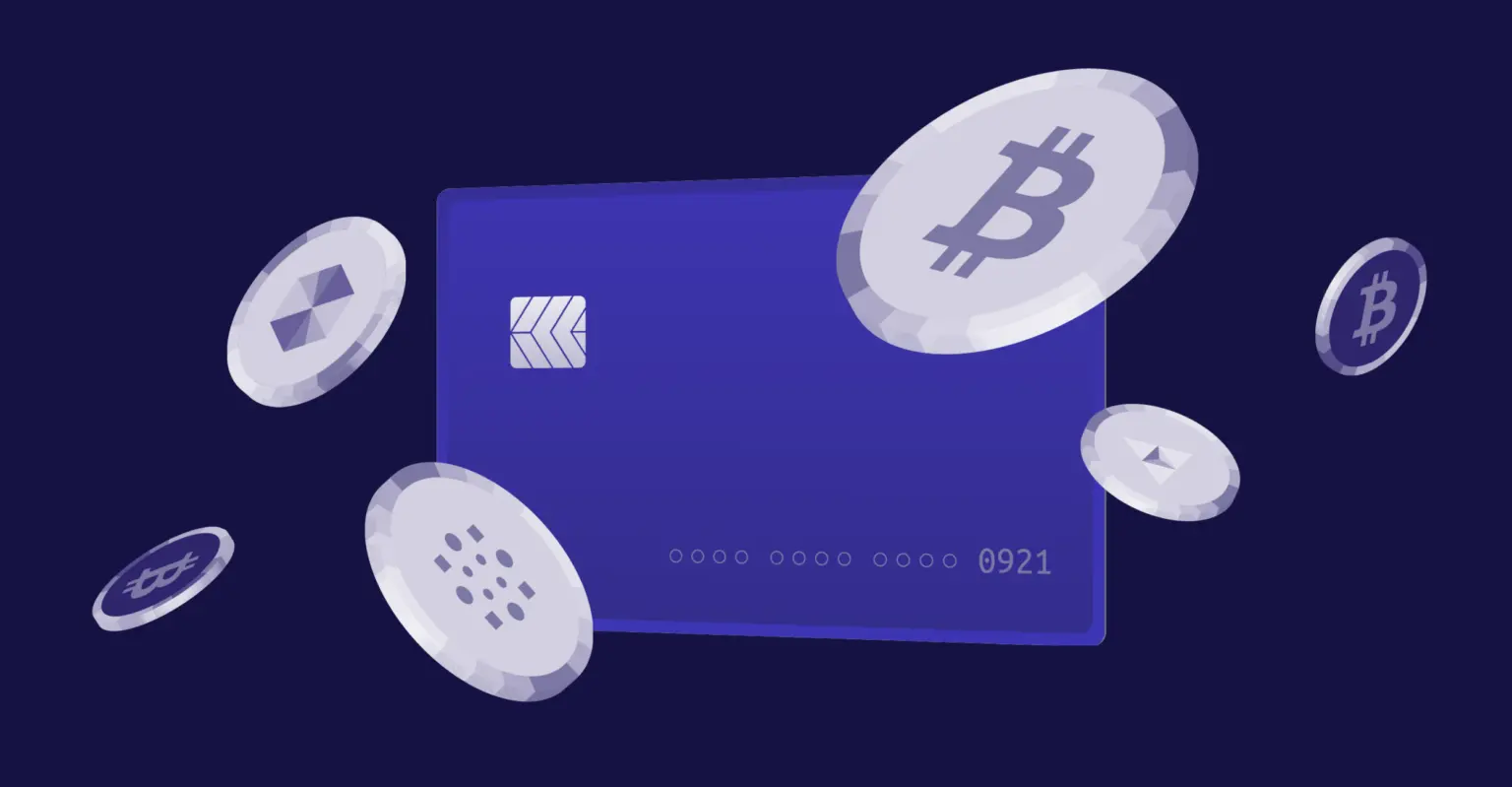Understanding DeFi Regulations: What Investors Need to Know

DeFi is growing fast, but regulations are catching up. Staying compliant is now a must for investors. Here's what you need to know:
- Key U.S. Agencies: The SEC, CFTC, FinCEN, and IRS are tightening rules on securities, derivatives, money laundering, and taxes.
- Major Rules in 2025:
- Travel Rule: Transactions over $3,000 require personal info sharing.
- KYC/AML: Platforms must verify users and track transactions.
- Tax Reporting: Every DeFi trade is a taxable event.
- Global Trends:
- The EU's MiCA law adds stricter rules for crypto platforms.
- Singapore enforces cold wallet storage and AML compliance.
- Risks: Hacks, smart contract flaws, and legal penalties remain concerns.
Quick Tip: Use blockchain analysis tools, keep detailed records, and consider forming legal entities for better compliance.
DeFi Regulations in the United States
Main Regulatory Agencies
In the U.S., DeFi regulation is managed by several federal agencies, each with specific responsibilities. The Securities and Exchange Commission (SEC) oversees securities and tokens, the Commodity Futures Trading Commission (CFTC) monitors derivatives, FinCEN enforces anti-money laundering (AML) rules, and the Internal Revenue Service (IRS) handles taxation for digital assets.
Here’s a quick breakdown of their roles:
| Agency | Oversight Area | Requirements |
|---|---|---|
| SEC | Securities and tokens | Registration, disclosure requirements |
| CFTC | Derivatives and commodities | Trading oversight, market manipulation prevention |
| FinCEN | Money transmission | AML compliance, BSA requirements |
| IRS | Digital asset taxation | Transaction reporting, capital gains |
Key Laws and Rules
U.S. DeFi compliance is grounded in specific laws and regulatory guidelines. For instance, FinCEN mandates that DeFi platforms falling under the category of money services businesses (MSBs) adhere to the Bank Secrecy Act (BSA). This includes implementing strict Know Your Customer (KYC) procedures and retaining transaction records for at least five years.
Another important regulation, the Travel Rule, came into effect in 2025. It requires Virtual Asset Service Providers (VASPs) to collect and share personal information for transactions exceeding $3,000.
"The primary vulnerability that illicit actors exploit stems from non-compliance by DeFi services with AML/CFT and sanctions obligations." – U.S. Treasury
These rules underscore the importance of compliance, and enforcement actions have highlighted their impact on the market.
Recent Legal Cases
Regulatory enforcement has significantly shaped the DeFi landscape. One major case occurred in February 2025, when OKX was fined over $504.7 million for operating without the necessary licenses and failing to meet AML standards. This marked one of the largest penalties in the sector's history.
In the same month, the SEC wrapped up its investigation into Uniswap Labs without imposing any penalties. This outcome was seen as a positive signal for the industry. As Uniswap's CEO Hayden Adams remarked:
"This is a huge win, not just for Uniswap Labs but for DeFi as a whole... I'm grateful that the new SEC leadership is taking a more constructive approach, and I look forward to working with Congress and regulators to help create rules that actually make sense for DeFi. The best days for DeFi are ahead."
Despite these regulatory challenges, the DeFi market has shown resilience. By early 2025, the total value locked in DeFi projects surged to $50 billion, a level not seen since before the FTX collapse.
How Is DeFi Regulated? - CryptoBasics360.com
Regulatory Challenges for DeFi Investors
Navigating the world of decentralized finance (DeFi) comes with its own set of regulatory obstacles. These challenges, often rooted in the complexities of U.S. regulatory frameworks, highlight the broader risks that investors face when participating in DeFi.
AML and KYC Rules
Anti-Money Laundering (AML) and Know Your Customer (KYC) regulations present significant hurdles in the DeFi space. Unlike traditional finance, DeFi operates without centralized intermediaries, making compliance with these rules more difficult.
| Challenge | Impact | Potential Solution |
|---|---|---|
| Pseudonymous transactions | Verifying wallet owners is difficult | Leverage blockchain analysis tools |
| No central intermediary | Lack of standardized verification | Develop self-KYC protocols |
| Smart contract limitations | Hard to update for regulatory compliance | Deploy upgradeable smart contracts |
In 2021, about 17% of all DeFi transaction volume was linked to illicit activities. This statistic underscores the need for stronger compliance measures. Beyond identity verification, tax obligations add another layer of complexity for DeFi investors.
DeFi Tax Requirements
Tax compliance in DeFi can be a maze. The IRS classifies cryptocurrency as property, meaning every transaction could trigger a taxable event. Starting in 2027, DeFi exchanges will be required to report tax details using Form 1099-DA.
Some of the key tax challenges include:
- Trading on DEXs: Each token swap on a decentralized exchange (DEX) is a taxable event, requiring investors to calculate capital gains or losses.
- Lending and Borrowing: Any interest earned through lending is taxed as ordinary income.
- Yield Farming: Rewards received from yield farming are typically taxed as income at the time they are received.
For instance, swapping ETH for cETH on Compound constitutes a taxable event. Investors must calculate capital gains based on the value of ETH at the time of the transaction. These tax obligations, combined with technical risks in smart contracts, make compliance even more daunting.
Smart Contract Legal Issues
Legal risks tied to smart contracts are another significant concern for DeFi investors. In 2024 alone, security exploits and fraud in DeFi led to losses of nearly $1.5 billion.
A glaring example occurred in April 2022, when Beanstalk Farms suffered a governance exploit that allowed an attacker to drain $182 million, highlighting vulnerabilities in smart contract design.
| Risk Category | Example | Mitigation Strategy |
|---|---|---|
| Code Vulnerabilities | Vyper compiler exploit ($50M lost) | Use protocols that have been audited |
| Governance Attacks | Beanstalk Farms hack ($182M lost) | Carefully assess governance structures |
| Private Key Security | bZx protocol breach ($55M lost) | Utilize secure hardware wallets |
"There's no one-size-fits-all solution to DeFi security. But awareness is the first step." - Mingyi Liu, Ph.D. student in Computer Science, Georgia Institute of Technology
To navigate these risks, investors should focus on platforms with strong security protocols and keep detailed records of all transactions. Using secure offline storage for private keys and choosing platforms with non-custodial solutions can also help manage potential legal challenges.
sbb-itb-d7b5bca
DeFi Rules Worldwide
Regulations governing decentralized finance (DeFi) differ significantly across the globe, making it essential for U.S. investors to understand these variations when engaging in international markets.
EU DeFi Framework
The European Union has taken a significant step in shaping DeFi regulations with its Markets in Crypto Assets Regulation (MiCA), which became effective in June 2023. MiCA offers one of the clearest regulatory structures for digital assets, focusing on crypto-asset service providers (CASPs) and investor protection.
| Aspect | MiCA Requirement | Impact on U.S. Investors |
|---|---|---|
| Stablecoin Trading | €200M daily transaction cap | Limits on large-scale trading |
| Asset Classification | Well-defined categorization system | Greater regulatory predictability |
| Transparency | Mandatory disclosure requirements | Improved due diligence processes |
MiCA also enforces strict transparency and reserve requirements, providing clarity for cross-border operations - an important consideration for U.S. investors navigating European markets.
Singapore's DeFi Rules
Singapore, through the Monetary Authority of Singapore (MAS), has established a robust regulatory framework under the Payment Services Act (PSA). These rules emphasize consumer protection and market stability. Key features include:
- Requiring 90% of customer assets to be stored in cold wallets
- Enforcing stringent AML/KYC compliance measures
- Launching initiatives like Project Guardian to explore regulated DeFi applications
- Introducing clear stablecoin regulations in 2023
"Singapore has long been recognised as a global leader in digital assets, known for striking a healthy balance between innovation and investor protection." - Zodia Custody
Lessons for U.S. Investors
Global regulatory models, like those in the EU and Singapore, offer valuable insights that could help refine the U.S. approach to DeFi.
| Region | Key Learning | Strategic Consideration |
|---|---|---|
| European Union | Comprehensive oversight | Align with MiCA standards for compliance |
| Singapore | Innovation-friendly policies | Explore regulated DeFi opportunities |
| United States | Evolving regulatory framework | Monitor and adapt to international trends |
Singapore’s successful balance between innovation and investor protection is particularly noteworthy. Its clear custody rules and pioneering efforts like Project Guardian provide a roadmap for effective regulation.
To effectively engage in the global DeFi landscape, U.S. investors should:
- Stay updated on international compliance standards
- Focus on regulatory principles rather than specific technologies
- Keep thorough transaction records across different jurisdictions
As global regulations continue to develop, understanding these frameworks will empower U.S. investors to make smarter decisions in the growing DeFi ecosystem.
Steps to Follow DeFi Rules
Investors navigating decentralized finance (DeFi) must take deliberate steps to ensure they adhere to regulations. Here's a guide to help maintain compliance while operating in the DeFi space.
Using Blockchain Analysis Tools
Modern blockchain analysis tools are essential for monitoring and managing transactions effectively. These platforms offer a range of features that support compliance efforts:
| Analysis Feature | Function | Compliance Benefit |
|---|---|---|
| Real-time Monitoring | Track transactions as they happen | Immediate risk detection |
| Risk Scoring | Assess counterparty risk levels | Enhanced due diligence |
| Entity Profiling | Link blockchain addresses to entities | Improved KYC compliance |
| Forensic Analysis | Trace the origins and flow of funds | Better AML compliance |
To stay compliant, consider these steps:
- Set up systems for real-time transaction screening.
- Configure risk alerts that align with regulatory requirements.
- Keep detailed transaction records to meet reporting obligations.
- Use AI-powered tools to reduce false positives and streamline monitoring.
"The transparency and stability associated with public blockchains creates persistent, irrevocable transaction records that enable risk analysis and risk mitigation." - JMLSG Guidance in the UK
It's not just about technology - structuring your investments legally is another critical piece of the compliance puzzle.
Setting Up Legal Entities
Wyoming has become a top choice for forming crypto-focused LLCs, thanks to its favorable regulations and absence of state income tax.
| Entity Type | Tax Treatment | Best For |
|---|---|---|
| Single-Member LLC | Pass-through taxation | Individual investors |
| Multi-Member LLC | Partnership taxation | Investment groups |
| C-Corporation | Corporate taxation | Large-scale operations |
To create a compliant DeFi investment structure, follow these steps:
- Select the appropriate business structure and jurisdiction.
- Draft operating agreements that address crypto assets.
- Set up dedicated crypto wallets and establish banking relationships.
- Implement systems to track and manage transactions.
Building a solid legal foundation is essential, but working closely with regulators can further enhance your compliance strategy.
Working with Regulators
Maintaining open communication with regulators is a cornerstone of compliance. The Treasury's 2023 DeFi Illicit Finance Risk Assessment outlines key steps to align with regulations.
Here’s how to strengthen your compliance efforts:
- Review and refine customer onboarding processes.
- Update data systems to meet Form 1099-DA requirements by January 1, 2027.
- Incorporate "security by design" principles into your operations.
- Develop and test incident response procedures.
"Supported and informed successful enforcement cases, targeted financial sanctions, and other actions to disrupt ransomware-financing" - FATF
Keep an eye on global regulatory changes, such as the adoption of the Crypto-Asset Reporting Framework (CARF). Regularly revisiting your compliance procedures ensures that you can continue to participate sustainably in the evolving DeFi ecosystem.
Looking Ahead: DeFi Rules
As compliance measures continue to evolve, the future of DeFi (decentralized finance) appears to be heading toward stronger security protocols and improved reporting standards.
While DeFi security has made progress - evidenced by a 54% drop in theft-related losses - hackers still managed to steal $1.1 billion, highlighting ongoing vulnerabilities. Regulators are sharpening their focus on platform security and safeguarding users in response to these challenges.
For investors aiming to stay ahead of regulatory shifts, here are three critical areas to prioritize:
Real-Time Compliance Monitoring
Advanced blockchain analytics tools now leverage AI and machine learning to track transactions, assess risks, and maintain compliance in real time.
Documentation and Reporting
The Crypto-Asset Reporting Framework (CARF) introduces a standardized global model for reporting. To align with these changes, it’s essential to maintain detailed transaction records and implement reliable tracking systems.
"The world of cryptocurrency compliance will continue to evolve in the coming years as more consumers increase exposure and financial institutions rush to keep up. As the situation unfolds, compliance teams must stay up to speed on cryptocurrencies, stay aware of where their organizations stand, and be ready to undertake a process of continuous assessment and improvement to produce a more prepared compliance posture." – Mike Ross, Director, Senior Sales, StarCompliance
Proactive Engagement
Engaging directly with regulators and participating in industry events can help investors understand compliance expectations and even contribute to shaping future regulations.
Platforms like the DeFi Accelerator offer valuable resources, including real-time updates, educational content, and compliance tools, to help investors stay informed and prepared. By keeping up with regulatory changes and adopting a proactive mindset, investors can better align with emerging standards.
This forward-thinking strategy not only supports continued innovation but also fosters greater clarity in the regulatory landscape. Institutional investors, in particular, are increasingly drawn to compliant platforms and regulated stablecoins, suggesting that staying aligned with regulations could offer a competitive edge in the DeFi space.
FAQs
What steps can investors take to comply with the Travel Rule and KYC/AML regulations in DeFi?
To align with the Travel Rule and KYC/AML regulations in the DeFi space, it's essential for investors to focus on robust identity verification measures. This includes implementing Know Your Customer (KYC) checks to verify user identities and actively monitoring for any suspicious activities. Using technology that facilitates secure data sharing between virtual asset service providers (VASPs) can also play a key role in meeting these regulatory standards.
Maintaining compliance isn't a one-and-done task. It requires staying informed about regulatory changes and performing regular audits of your compliance procedures. Additionally, consulting with legal experts who specialize in cryptocurrency laws can offer valuable, jurisdiction-specific guidance. These practices can help investors navigate the shifting DeFi landscape with greater confidence.
How can investors reduce the risks of smart contract vulnerabilities in DeFi?
When it comes to reducing the risks tied to smart contract vulnerabilities in DeFi, there are a few practical steps investors can take. Start by focusing on platforms that have undergone independent audits. These audits are critical for spotting potential issues, like reentrancy attacks or coding mistakes, before hackers can exploit them.
It's also wise to choose platforms with strong security protocols and a solid history of reliability. Regular updates and monitoring by developers play a big role in keeping smart contracts secure against new threats. To further safeguard your investments, look for platforms that incorporate multi-signature wallets or decentralized governance systems. These features help eliminate the dangers of relying on a single point of failure.
Lastly, keep yourself updated on the latest regulatory changes and recommended security practices in the DeFi space. Staying informed and practicing due diligence are essential for managing risks in this constantly evolving landscape.
How do international regulations like the EU's MiCA and Singapore's Payment Services Act affect U.S. DeFi investors?
International regulations like the EU's Markets in Crypto-Assets (MiCA) and Singapore's Payment Services Act (PSA) can indirectly impact U.S. DeFi investors by shaping global market standards. MiCA aims to establish a unified regulatory framework across Europe, prioritizing transparency and security for crypto companies. This push for consistency could strengthen trust in DeFi markets worldwide, which may benefit U.S. investors using platforms that align with these regulations.
Similarly, Singapore's PSA enforces strict licensing requirements for payment services, promoting a safer environment for digital asset transactions. These types of frameworks encourage better compliance and risk management practices, creating a more secure and appealing global DeFi ecosystem. For U.S. investors, keeping up-to-date with these international regulations can provide valuable insights to navigate the changing DeFi landscape and make more informed investment choices.




